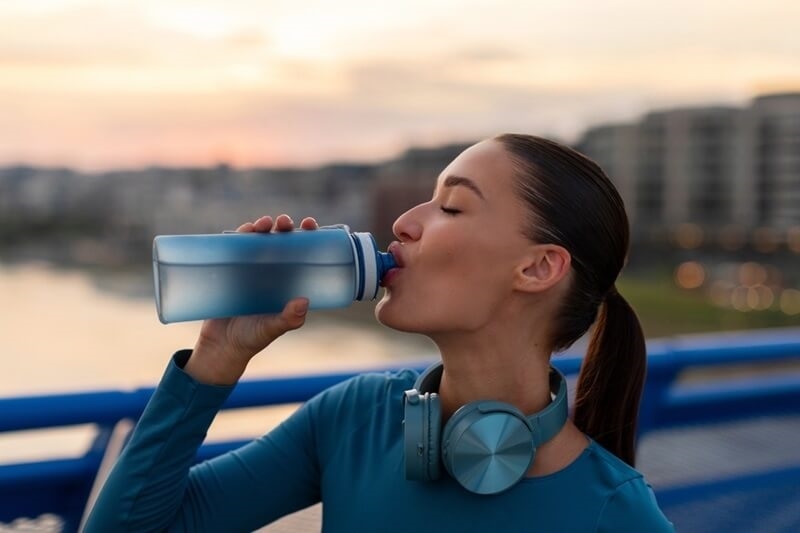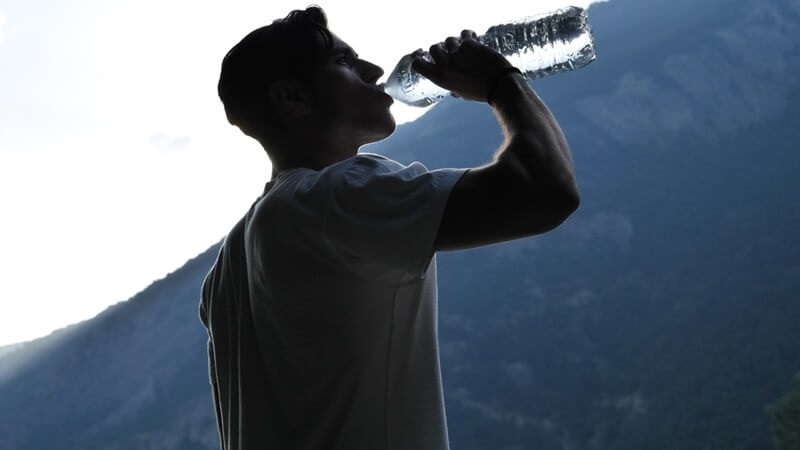
Do you find it challenging to stay hydrated with your busy schedule? You're not the only one. Whether you are commuting, going from meeting to meeting, or just not a fan of drinking water, hydration sometimes takes a back seat. While staying hydrated is important for energy levels, it also impacts digestion, focus, skin, and mood. If you're searching for achievable, impactful daily hydration strategies, this guide will walk you through how to stay hydrated throughout the day without having to force it.
In this blog, we'll discuss everything from how much to drink daily and staying hydrated during work to savvy hydration tips for busy individuals and how to identify signs of dehydration before they impact your productivity or health.
Hydration is more than just not being thirsty. Sufficient fluid consumption is critical to almost every physiological function, from transporting nutrients to the brain to cognitive functions. Even mild dehydration can result in fatigue, headaches, lack of focus, and mood changes.
Your body sheds water all day through sweat, urine, and even breathing. That's why daily hydration is not optional. But the secret is how to be hydrated throughout the day without forcing it? Let's dive into the science-supported hacks.
We’ve all heard the “8 glasses a day” rule. But know that how much water to drink per day is dependent on several factors like your age, weight, activity level, and climate.
General Recommendations:
Pregnant/breastfeeding women, athletes, and people in hot climates may need even more.
These fluids include water, other beverages, and water-rich food. Still, you should aim to drink a minimum of 60-70 ounces of plain water daily.
Pro Tip: You can use a hydration calculator or work with your healthcare professional to assess your needs.
When you can spot early signs of dehydration, you can be proactive instead of reactive. Keep an eye out for these signs:
If you are looking for doable, impactful daily hydration options, this blog will explain how to keep hydrated throughout the day, even if you aren't forcing it.
In this blog, we are going to cover everything from how much to drink daily, what to do to stay hydrated while at work, savvy hydration tips for busy people, and of course, how to recognize signs of dehydration before they affect your productivity or your health.

Hydration is more than just not being thirsty. Adequate fluid ingestion is essential to virtually all biological functions, ranging from the transport of nutrients to cognition. Mild levels of dehydration can cause fatigue, headaches, a poor ability to concentrate, and mood swings.
Your body sheds water all day through sweat, urine, and even breathing. That's why daily hydration is not optional. But the secret: how to be hydrated throughout the day without forcing it? Let's dive into the science-supported hacks.
By understanding early symptoms of dehydration, you will be doing more than reacting to it; you will be being proactive. Watch for the following symptoms of dehydration:
Overlooking these indicators can result in more serious issues, particularly in summer or after working out. Early detection is the secret to staying one step ahead.
Offices and home offices are ubiquitous hydration risk zones. Coffee, tension, air conditioning, and computer usage can dry you out without your knowledge.
Here's how to make hydrating at work simpler and more of an unconscious habit:
Out of sight, out of mind. Have a refillable bottle on your desk and refill it at break time.
Utilize phone alarms, water tracking apps, or smart water bottles that flash when it's time to take a sip.
Fruits such as watermelon, oranges, strawberries, and cucumbers are more than 90% water.
Add lemon, cucumber, or mint slices to taste without any added sugar.
Drink a glass of water whenever you come back from an email or break—it creates good habits.
If you're constantly on the go or simply don't like drinking water, these hydration hacks for busy people can assist:
Drink a glass of water when you wake up and another one at night.
Select one that is cool to the touch and will fit into your bag or car cup holder.
Sipping more often is both less effort and better absorbed by your body.
Individuals tend to drink more water when sipping using a straw—particularly from a playful tumbler.
Low-sugar electrolyte tablets or powders can make water more enjoyable and more efficient.
Knowing how to stay hydrated all day without forcing it means aligning water intake with your natural schedule.
Your body is dehydrated after sleep. Drink 8–10 ounces immediately after waking.
A glass of water 30 minutes before meals aids digestion and prevents overeating.
Drink before, during, and after exercise to replace lost fluids.
When energy dips around 2–3 PM, reach for water before grabbing coffee.
Sip water in the early evening, but avoid heavy drinking right before bed to prevent sleep disruption.
Avoid these everyday mistakes that make daily hydration tips less effective:
Yes, water is optimal—but it's not your sole choice. You can add to your intake with:
These foods contribute to your fluid intake and provide added nutrients.
Modern tools can support your efforts to stay hydrated all day without forcing it:
These tools make drinking water a game—and that can keep you consistent.
Drink before, during, and after physical activity. Recharge with electrolytes if training lasts longer than 60 minutes.
Needs greatly increase. Have a water bottle nearby throughout the day and particularly during breastfeeding.
Older adults may have a reduced sense of thirst. Set reminders or drink on a routine schedule.
Kids need reminders and fun options—flavored water or frozen fruit pops help increase intake.
You’ll know your daily hydration tips are working when:
Hydration becomes second nature when you don't even think about it anymore.
You don't have to guzzle gallons of water to get what you need. With the proper everyday hydration tips and understanding of how to stay properly hydrated throughout the day without overdoing it, it's just second nature. From making water accessible to adding flavor to your drinks to incorporating hydration into your routine, the smallest adjustments make the greatest impact.
Knowing how much water to consume daily, paying attention to signs of dehydration, and using hydration hacks for the busy will revolutionize your health and energy levels.
Begin small today. One glass. One refill. One reminder. That's all it takes to create a healthier, more hydrated you.
This content was created by AI